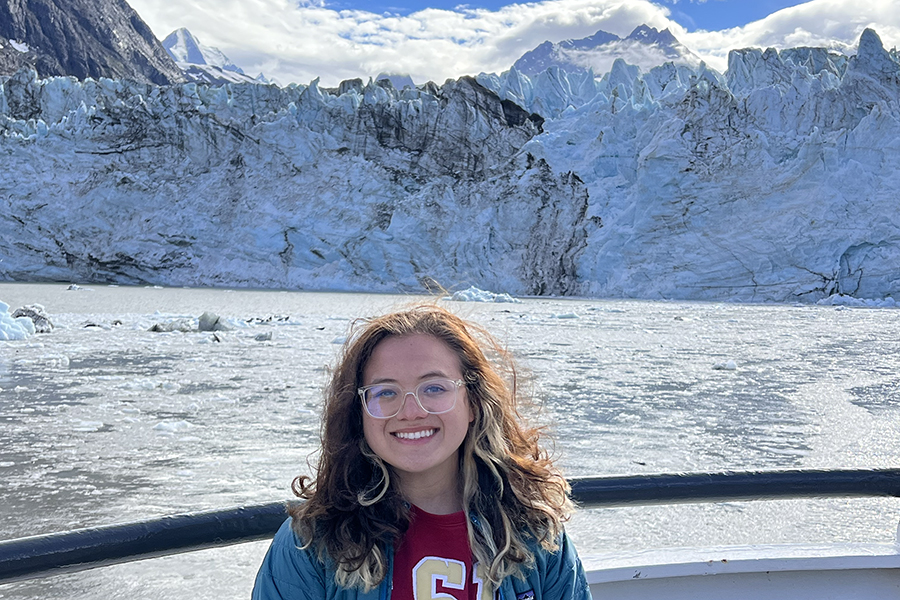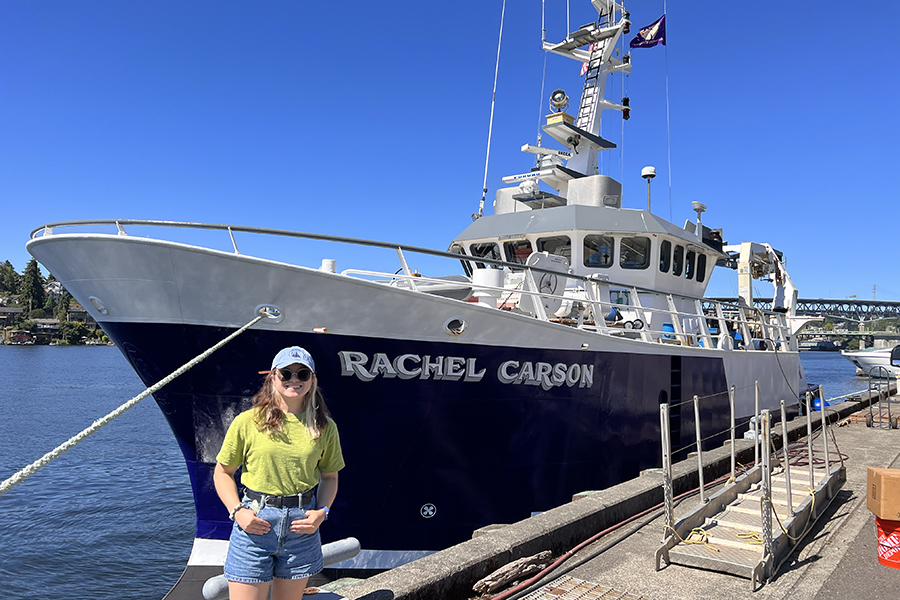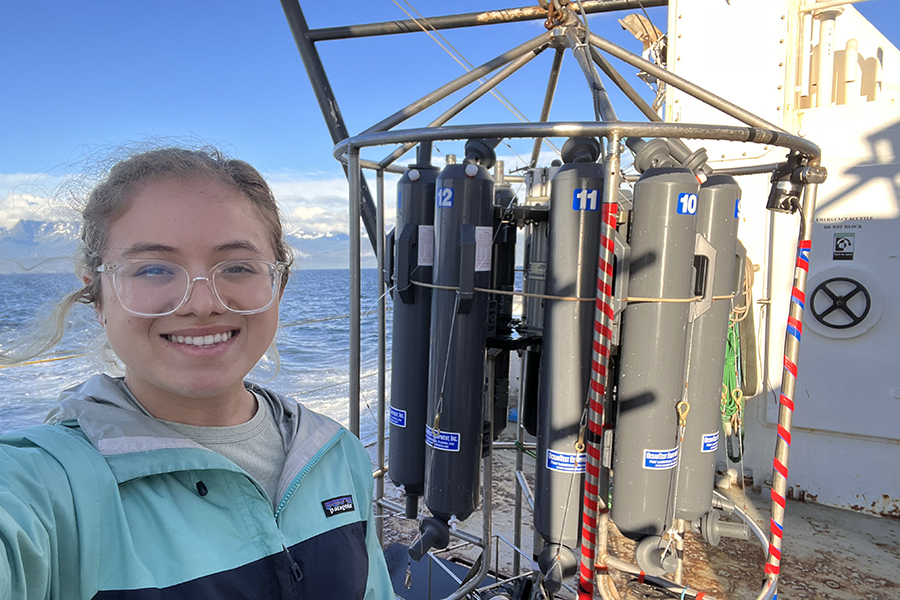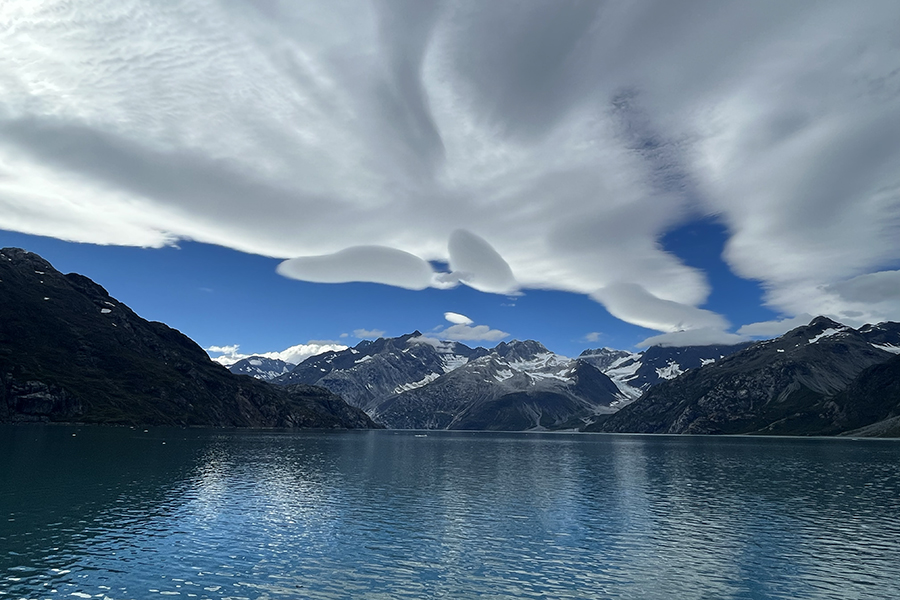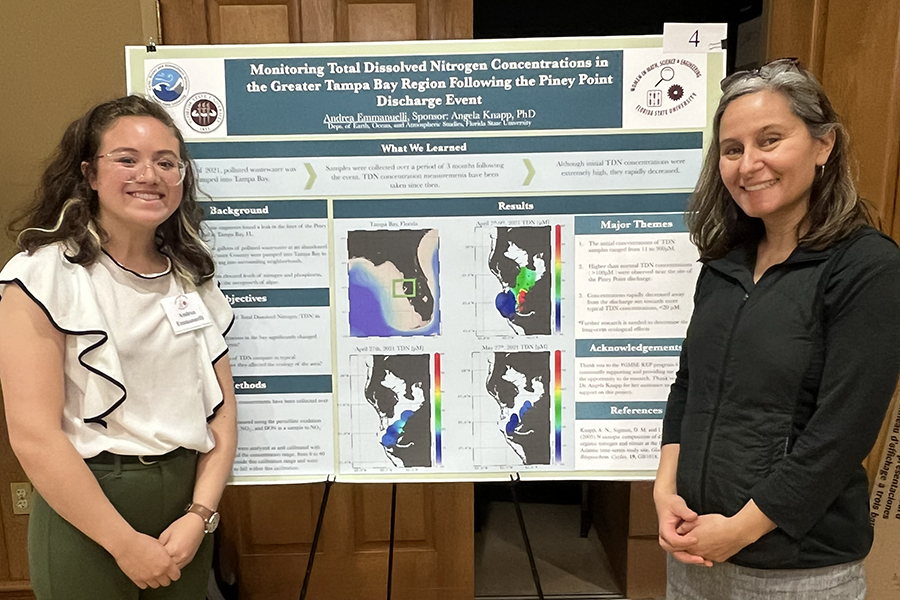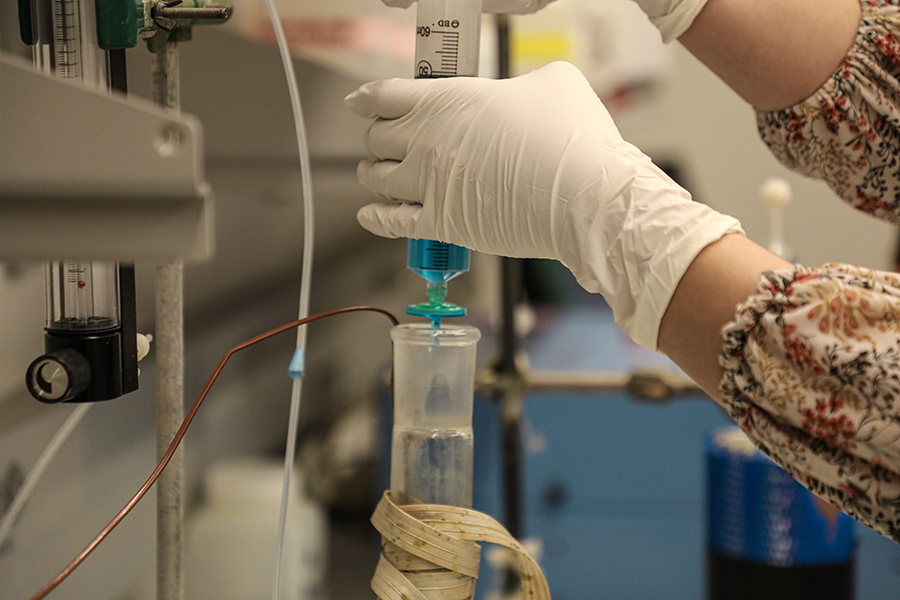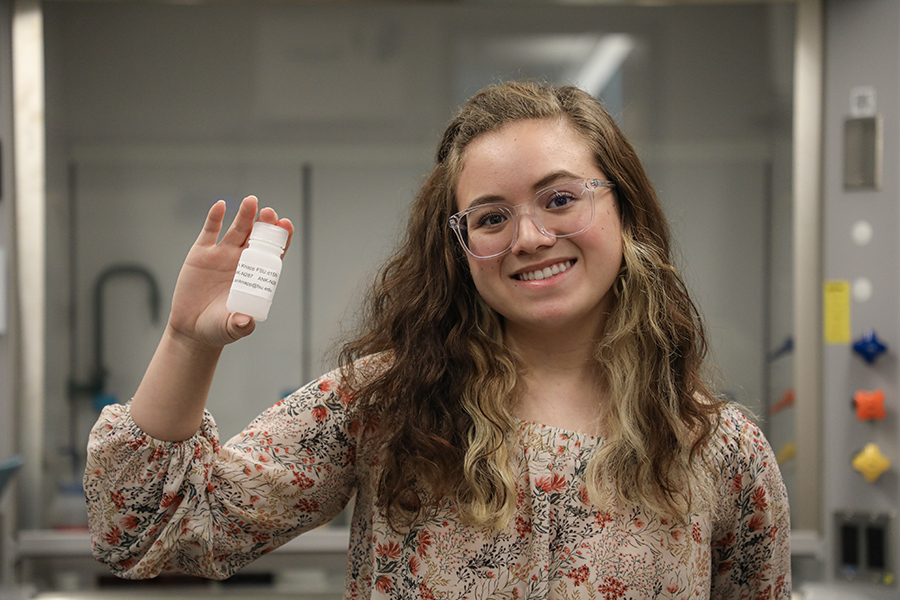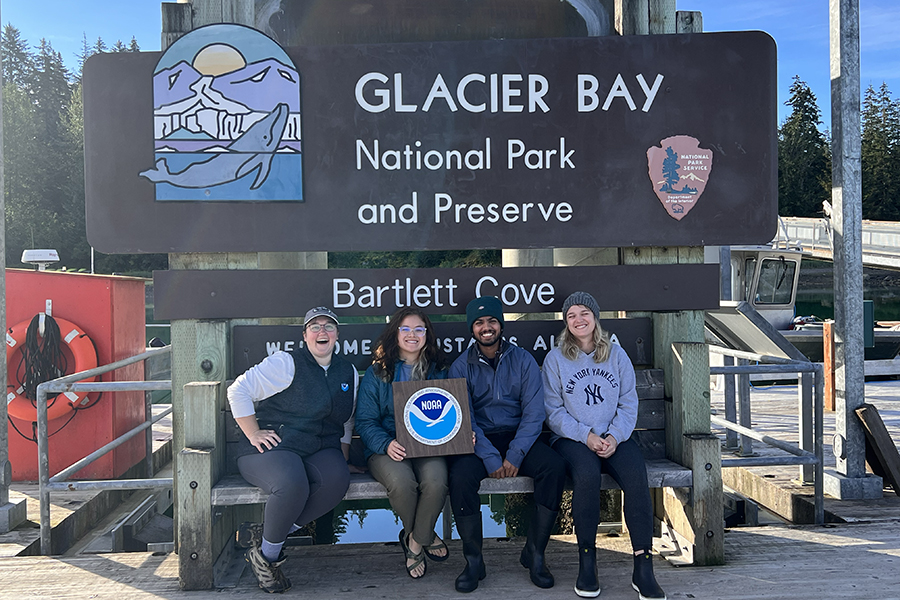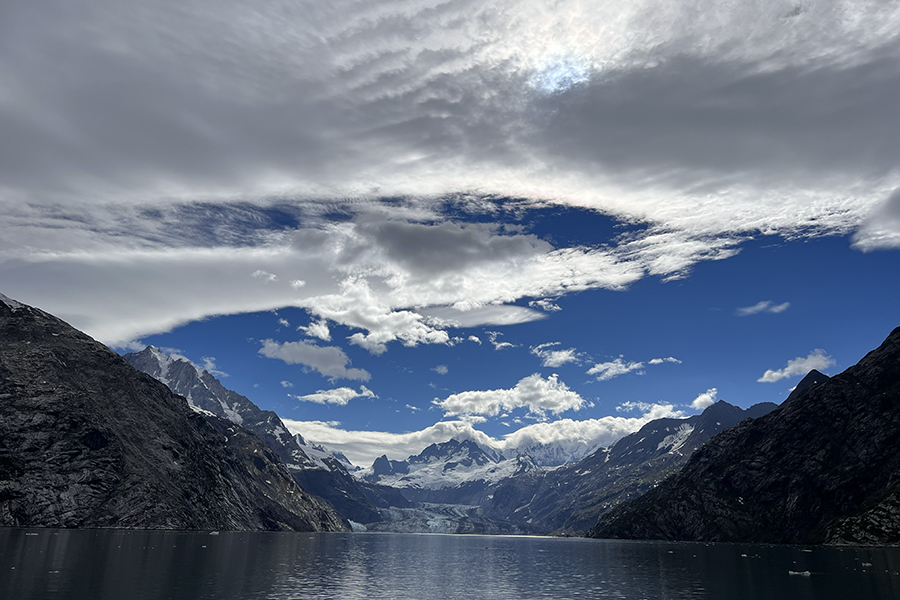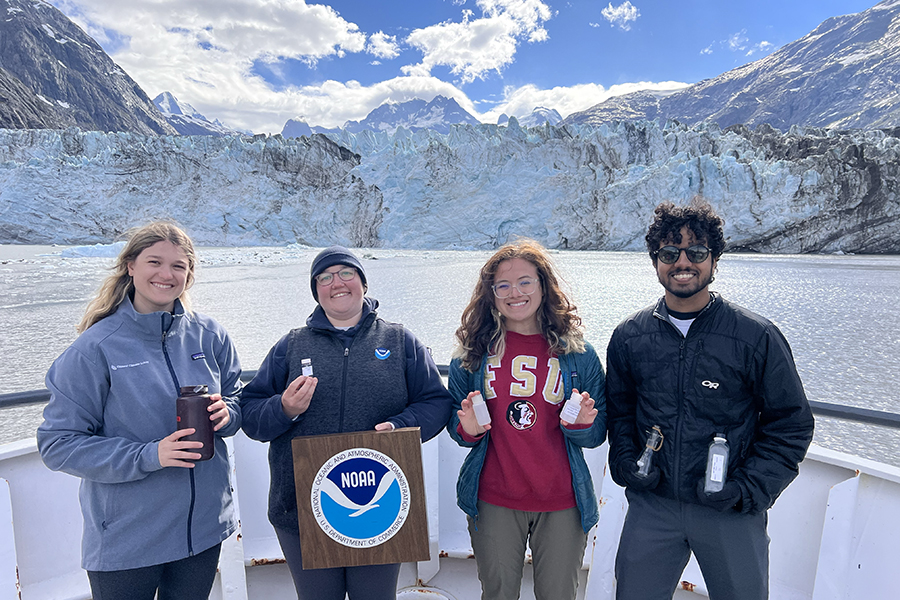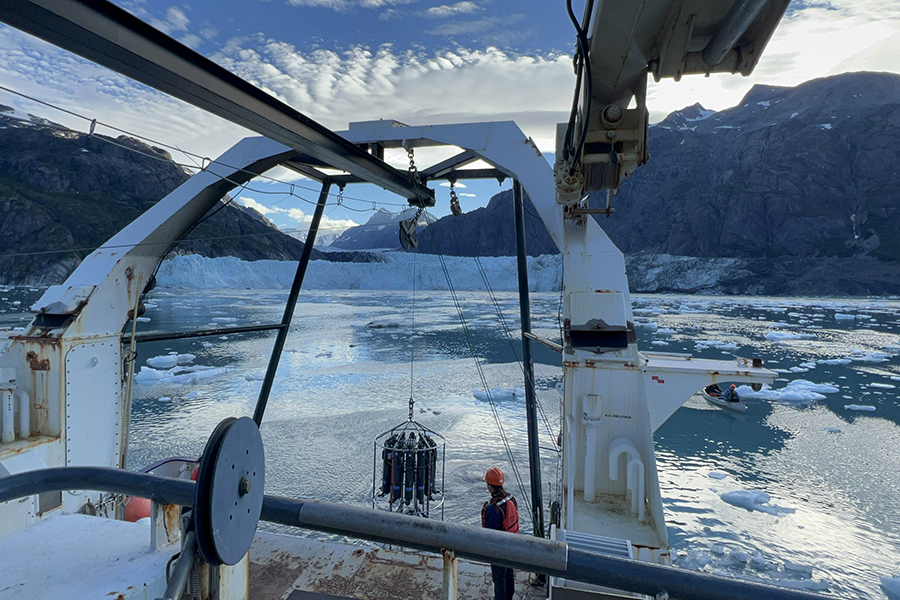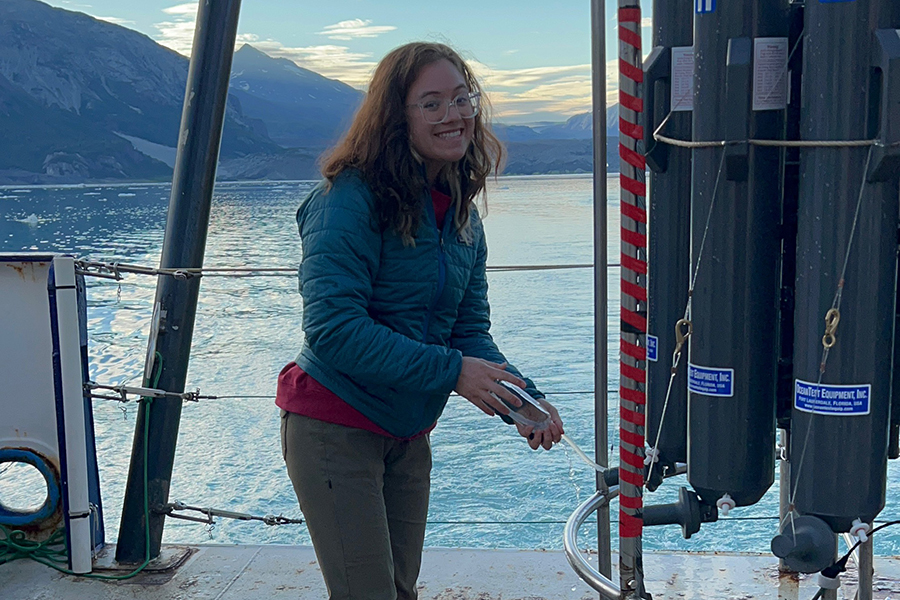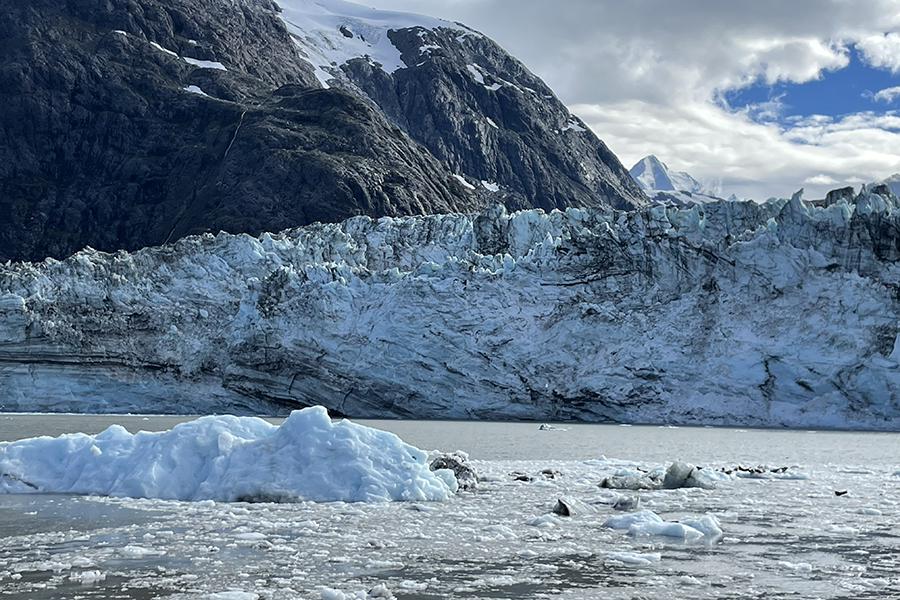Research Ready
Junior Andrea Emmanuelli is making the most of her Florida State experience on campus, underwater, and on top of the world
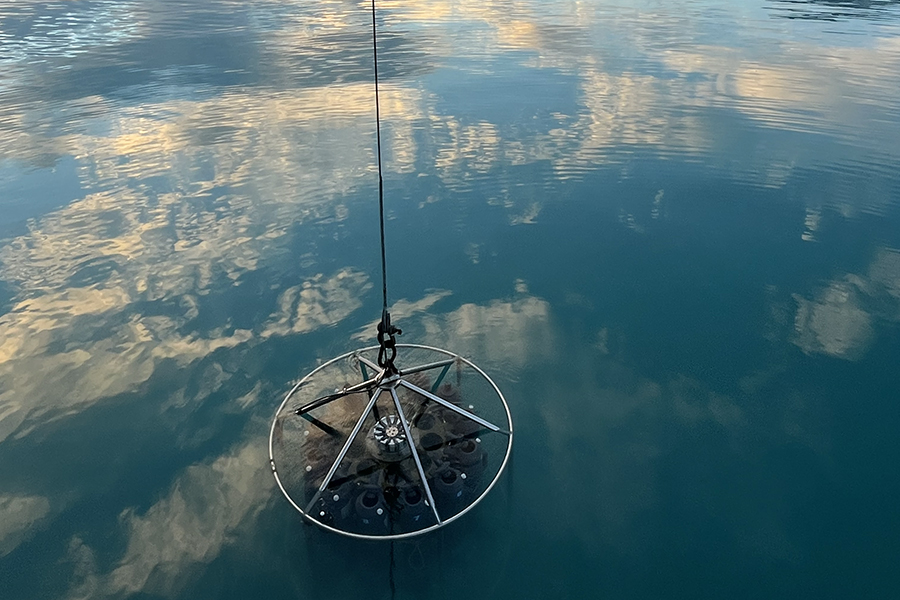
After weeks on the water, Andrea Emmanuelli developed the sea legs necessary to remain surefooted while conducting experiments aboard the R/V Rachel Carson in the Gulf of Alaska, but one thing remained a daily surprise.
Each time she peered through a pair of binoculars, she was enchanted by the creatures, ranging from puffins to humpback whales, frolicking across Glacier Bay National Park’s breathtaking vistas.
For Emmanuelli, a Florida State University junior double majoring in geology and environmental chemistry through the Department of Earth, Ocean and Atmospheric Science and Department of Chemistry and Biochemistry, the sightseeing was the cherry on top of last summer’s three-week Alaska research cruise where she took samples to record changes in water chemistry. Glacier Bay is home to tidewater glaciers, or glaciers terminating in the ocean, which are rapidly receding; they may disappear in our lifetimes, which heavily impacts the surrounding ecosystems.
“I learned how important the Gulf of Alaska is to its coastal and Native communities and how imperative it is to study climate change’s effects on natural resources, like fish and fishing exports, that these communities rely on for their economies,” Emmanuelli said.
“I learned how important the Gulf of Alaska is to its coastal and Native communities and how imperative it is to study climate change’s effects on natural resources, like fish and fishing exports, that these communities rely on for their economies.”
— Andrea Emmanuelli
Onboard the research cruise, a joint effort of the National Oceanic and Atmospheric Administration and the University of Alaska Fairbanks Ocean Acidification Research Center, the crew studied the water’s properties with conductivity-temperature-depth, or CTD, sensors.
As the device descends into the water column, a vertical expanse of water stretching between the surface and seafloor, its sensors capture and relay information including temperature, oxygen saturation, salinity, pH, fluorescence and density.
“Analyzing a CTD sensor cast is an insightful experience because it shows how geology, biology, physics and chemistry work together in real time,” said Emmanuelli, who transported her collected samples more than 3,000 miles to Tallahassee for nitrate isotope and concentrations analysis.
It’s widely understood that increasing carbon dioxide levels contribute to climate change; however, nitrogen levels are also rising due to human activities like fertilizer overuse and fossil fuel consumption. The ocean absorbs excess terrestrial nitrogen, and it can cause algae to grow faster than marine ecosystems can support. Overgrowth of algae — which consumes oxygen — can produce dead zones with so little oxygen that other life cannot survive.
Emmanuelli was introduced to nitrogen’s effects on the ocean as a freshman in associate professor of oceanography and environmental science Angela Knapp’s lab. The two met during a lab tour arranged by Women in Math, Science and Engineering, Emmanuelli’s living-learning community, or LLC. Emmanuelli was able to conduct research with Knapp through acceptance into WiMSE’s Research Experience Program.
“Andrea is uniquely focused on taking advantage of opportunities at FSU, both in coursework and research,” Knapp said. “She’s not afraid to challenge herself, and she stands out because she works hard to set herself up for success.”
As an incoming freshman, Emmanuelli discovered LLCs, small groups of students who live together, share academic interests, and take classes together. The WiMSE LLC hosts an annual research symposium, guiding WiMSE students to become more comfortable with research presentations. Emmanuelli has presented at this symposium twice and is looking forward to presenting again this year. Her most recent presentation investigated foreign nutrients’ impact on Tampa Bay’s nutrient cycling following the Piney Point Leak.
“I can trace almost every impactful experience I’ve had back to WiMSE,” Emmanuelli said. “I don’t think I would have sought out as many early opportunities without it.”
In addition to conducting research, Emmanuelli is involved in several environmentally focused extracurriculars — she’s treasurer of the Climbing Club at FSU and a trip leader for Campus Rec Outdoor Pursuits.
“The more I learn about the environment, the more I want to share that experience and knowledge with people,” Emmanuelli said. “Environmental education connects people to their surroundings and eventually leads them to think about their impact on Earth.”
Kendall Cooper is pursuing a double major in media/communication studies and English with a concentration in editing, writing and media. She is set to graduate in May 2023.

